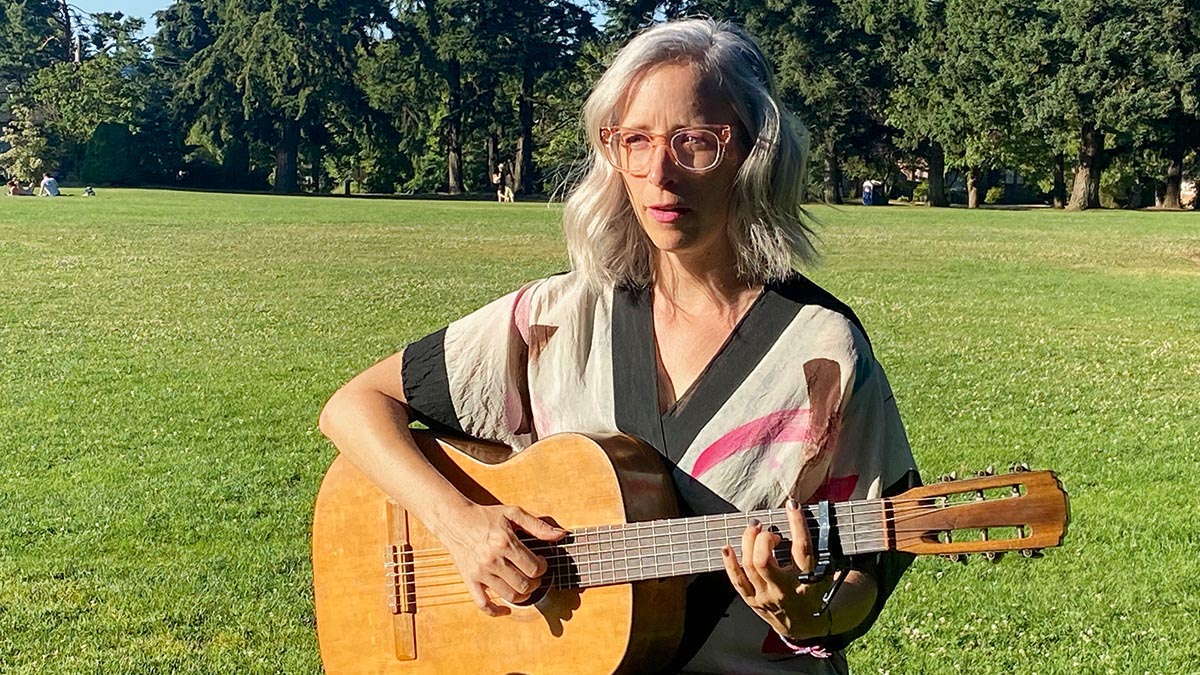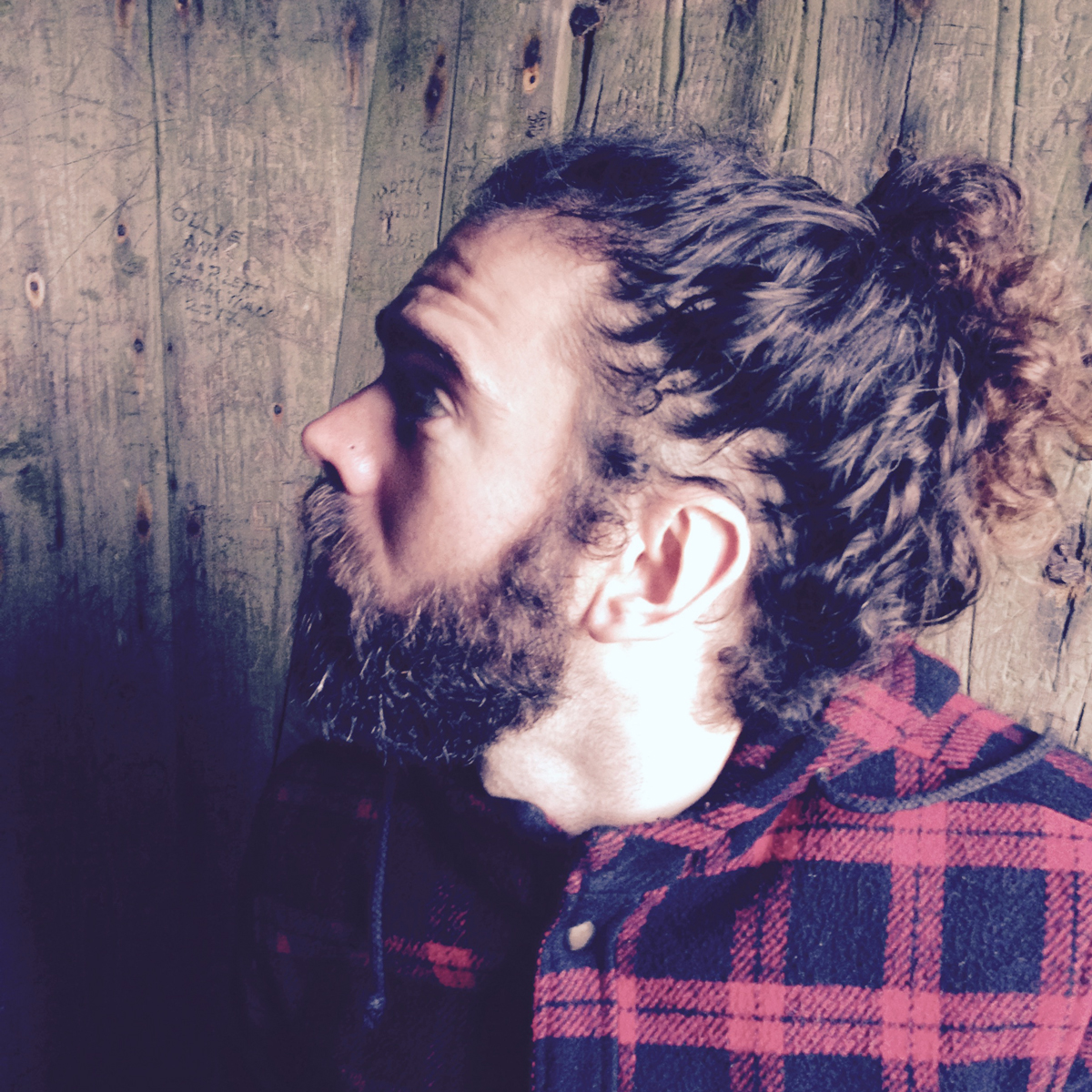Laura Veirs on how she took overdriven riot grrrl electrics into the realm of nylon-string country blues
The prolific recording artist – and children’s author – discusses her guitar playing and songwriting sensibility, evolving from DIY punk to encompass country blues fingerstyle and myriad other influences

The albums from Portland, Oregon-based singer-songwriter Laura Veirs are always rewarding listens, showcasing her skills as both a guitarist and sharp lyricist, and taking in influences from country blues to punk.
Found Light is her 12th release and the first she’s co-produced, but as well as this prolific recording career, which started in 1999 with her eponymous debut, Laura has also written a children’s book, Libba: The Magnificent Musical Life Of Elizabeth Cotten, launched a podcast called Midnight Lightning, which explores juggling a music career with parenthood, and taught songwriting.
It’s a full resume, and her latest album is a standout addition.
Riot Punk Roots
Found Light includes songs such as lead single, Winter Windows, that lean on punk styles from the 90s.
“I started playing guitar when I was about 18, but didn’t really take to writing or being a musician in bands until college in Minnesota,” she tells us. “There I found the riot grrrl punk scene, which I knew nothing about before. This was pre-internet, so it was underground, DIY stuff, finding out stuff through magazines and posters on the streets.
“I discovered Bikini Kill and Team Dresch, and Brooklyn punk bands; I wrote them letters, made friends with them, then played electric guitar and wrote songs in my own all-girl punk band.”
Stylistic Shift
Far from being punk music, Laura’s sound is diverse, with folk and fingerstyle guitar underpinning much of her work.
Get The Pick Newsletter
All the latest guitar news, interviews, lessons, reviews, deals and more, direct to your inbox!
“When I moved to Seattle, I started getting into people like Mississippi John Hurt and Elizabeth Cotten and the old-school country blues stuff,” she says. “I think my own style pendulums between the punky, overdriven electric sound, with Sleater-Kinney-style pick work, and intricate fingerstyle playing, like Nick Drake, with a bit of Brazilian music influencing it, too. But country blues stuff is what I mostly do now.”
Multi-Tasking
As well as being co-producer of her new album, another significant detail is it being the first work that Laura has recorded with her simultaneously singing and playing guitar, a very deliberate move.
“I was listening to artists like Adrianne Lenker [of Big Thief] singing and playing live and really enjoying that sound,” Laura says. “I wanted to see if I could do that because my ex [Tucker Martine] was my producer for years and he liked to keep things more controlled [in the studio]. It was really cool to know I could sing and play at the level I needed to get this music across how I wanted it.”
The argument for control and precision over immediacy in the studio is age old, but for Laura, this approach worked for the album.
“It isn’t perfect,” she smiles, “but it has this really good energy and it feels alive. It’s musical in a way that I wasn’t familiar with before, in terms of recording. We did a couple of takes and not a lot of edits; some of the songs don’t have any edits. It was nice. My old records are very fussed over.”
Minimal Toolbox
When it comes to an arsenal of instruments, Laura is a musician who likes to keep it to a minimum and doesn’t seem to favour flash gear.
“I only have three guitars,” she says. “I have a Goya nylon-string, which my dad bought in the 60s in Chicago. It’s my favourite guitar; it was the family guitar around the house growing up and the one I write and record all of my albums with. I do also have a Les Paul electric and a Martin steel-string, but that’s it – and the Goya is the one I use the most and tour with.”
Standout track: Seaside Haiku
For fans of: Sleater-Kinney, Big Thief, Joni Mitchell
- Found Light is out now via Bella Union.
Glenn Kimpton is a freelance writer based in the west of England. His interest in English folk music came through players like Chris Wood and Martin Carthy, who also steered him towards alternate guitar tunings. From there, the solo acoustic instrumental genre, sometimes called American Primitive, became more important, with guitarists like Jack Rose, Glenn Jones and Robbie Basho eventually giving way to more contemporary players like William Tyler and Nick Jonah Davis. Most recently, Glenn has focused on a more improvised and experimental side to solo acoustic playing, both through his writing and his own music, with players like Bill Orcutt and Tashi Dorji being particularly significant.
“What blew me away was that everyone wanted the curly maple top. People were calling, saying, ‘I’ve got to have the bird inlays’”: Paul Reed Smith on raising the Standard 24, finally cracking the noise-free guitar and why John Sykes is a tone hero
“Among the most sought-after of all rhythm guitars… a power and projection unsurpassed by any other archtop”: Stromberg has made a long-awaited comeback, and we got our hands on its new Master 400 – a holy grail archtop with a price to match











